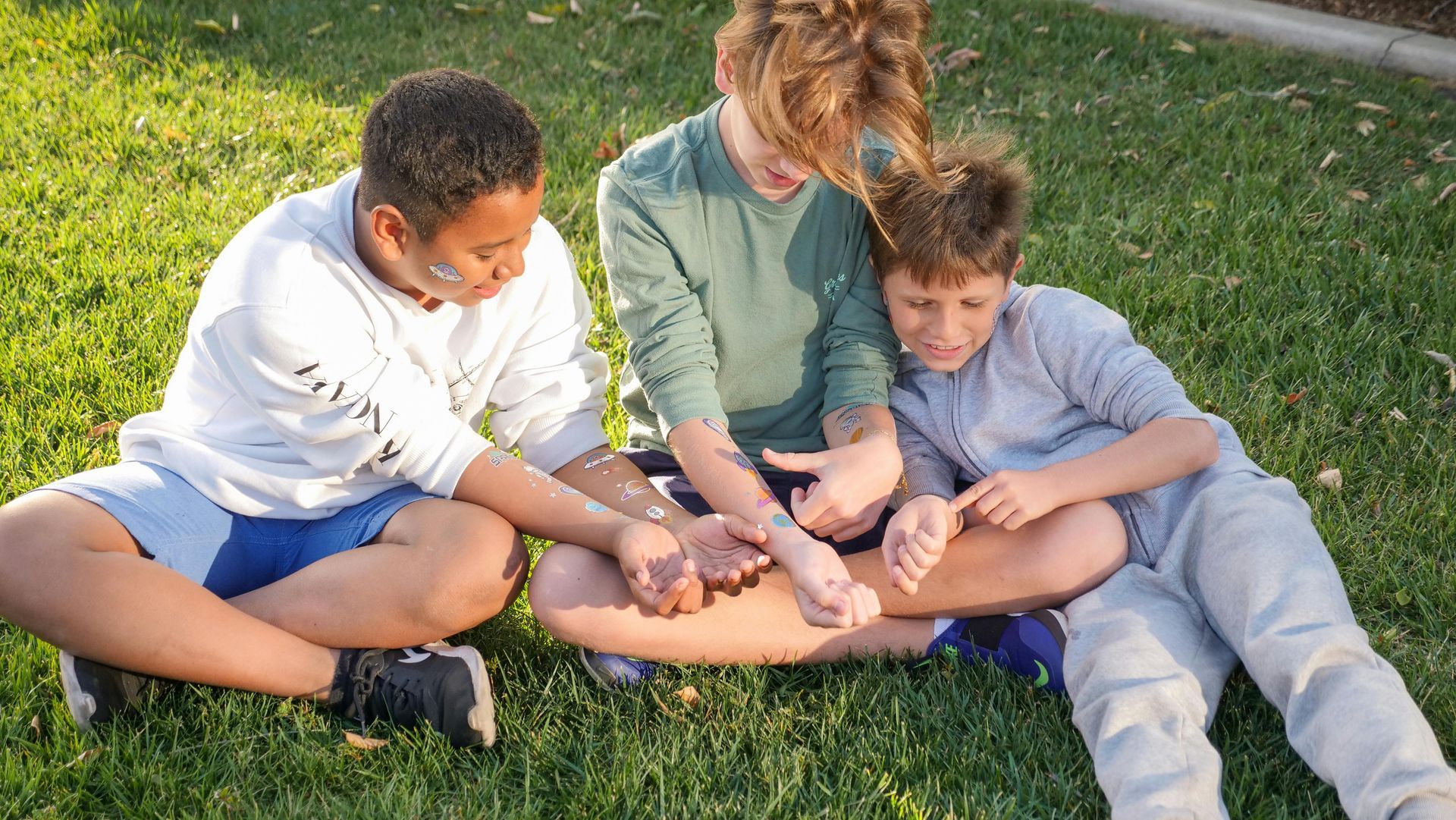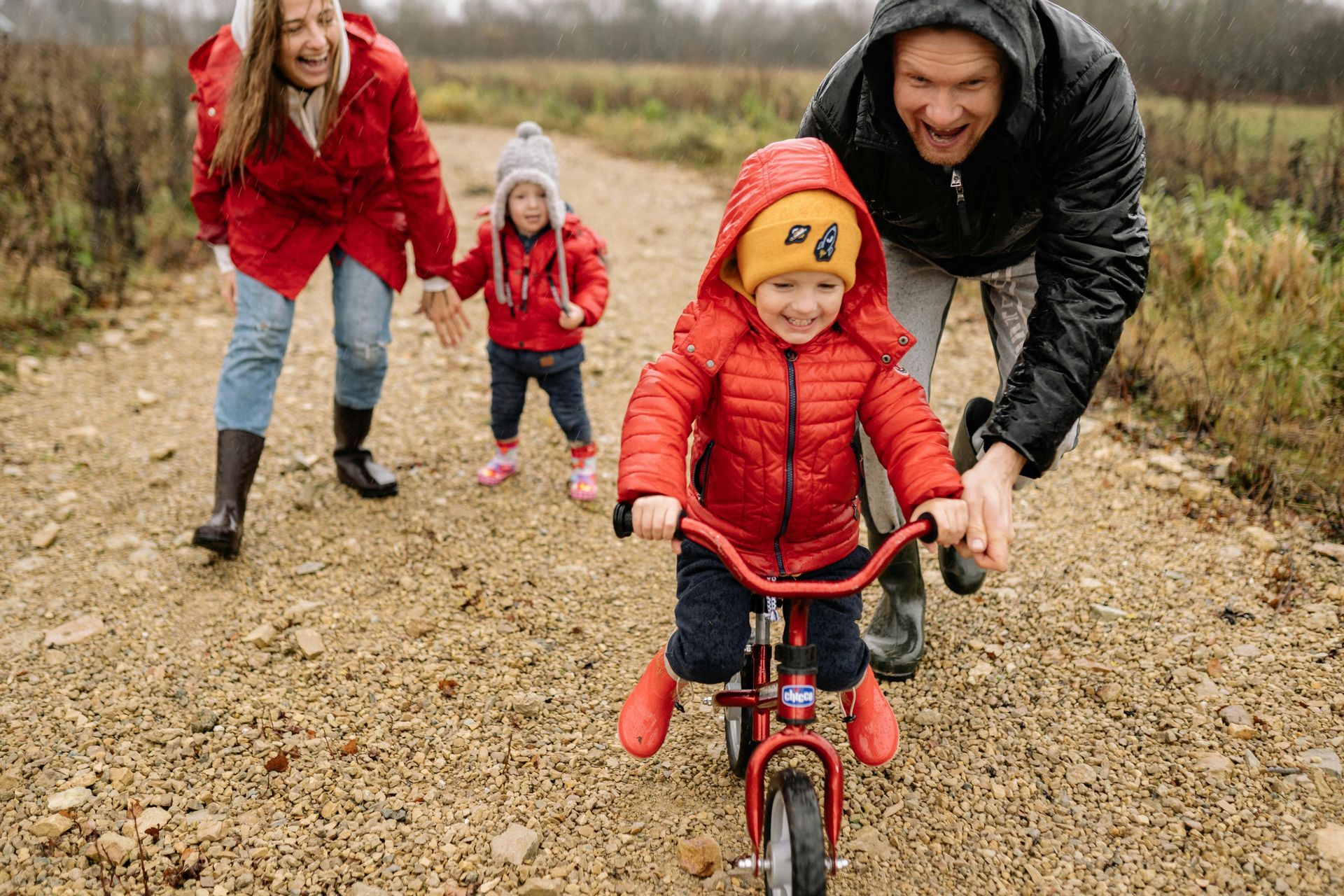Spring into Regulation: Outdoor Activities That Build Resilience in Children
As the weather warms up and the days get longer, it’s the perfect time to head outdoors. But nature isn’t just a beautiful backdrop—it can be a powerful tool for helping kids feel calm, connected, and resilient.
Whether you're a caregiver, educator, or someone who spends time with children, you don't need to be a therapist to make a difference. Sometimes, the simplest experiences—fresh air, movement, and play—can help children regulate their emotions and feel safe in their bodies.
Why Nature Helps Kids Regulate
Children (and adults) are constantly taking in sensory information—from sights and sounds to emotions and expectations. When that input becomes overwhelming, it can be hard for kids to focus, listen, or feel at ease. This is where nature steps in.
Outdoor play helps reset the nervous system. Movement supports emotional regulation. Sunshine boosts mood. And best of all, there’s no “right” way to play outside—just space to explore, express, and breathe.
Signs a Child Might Need a Regulation Reset
- Restlessness or fidgeting
- Quick frustration or meltdowns
- Difficulty focusing or following directions
- Withdrawing from others or play
- Saying “I’m bored” a lot despite having toys or option
These behaviors aren’t “bad”—they’re cues. And getting outside can help children release built-up energy, find calm, and feel more grounded.
5 Outdoor Activities That Support Regulation
1. Nature Walk & Talk
Let the child lead a walk—around the block, through a park, or just in the yard. Ask gentle questions like, “What do you see?” or “What sounds do you hear?” This builds awareness and connection.
2. Rock Hunt & Sort
Collect rocks, leaves, or sticks and sort them by size, color, texture, or shape. This encourages focus and tactile exploration.
3. Obstacle Course Challenge
Use chalk, cones, or found objects to create a movement course: jump here, balance there, crawl under that. Movement fuels self-regulation and builds confidence.
4. Sensory Scavenger Hunt
Try prompts like “find something soft,” “something round,” “something bumpy,” or “something that smells nice.” Great for expanding sensory vocabulary and staying present.
5. Quiet Listening Game
Have a short “quiet time” outdoors where everyone closes their eyes and listens. Afterward, talk about what you heard: birds? cars? wind? This builds mindfulness without pressure.
Tips for Making Outdoor Time More Supportive
- Keep it unstructured and pressure-free
- Offer choices instead of commands
- Stay close by but let the child lead
- Bring water, sunscreen, and patience
Tips for Making Outdoor Time More Supportive
You don’t have to plan a whole afternoon adventure. Even 10 to 15 minutes of outdoor play can help a child reset and feel more connected—to their body, their environment, and the people around them.
Every small moment of calm is a step toward resilience.
Want more simple, supportive ideas?
Follow the Society of Care blog for practical tools that help children feel seen, supported, and safe—one small step at a time. Or, Join our mailing list where we share more resources that accompany our blog posts.
Join Our Mailing List










